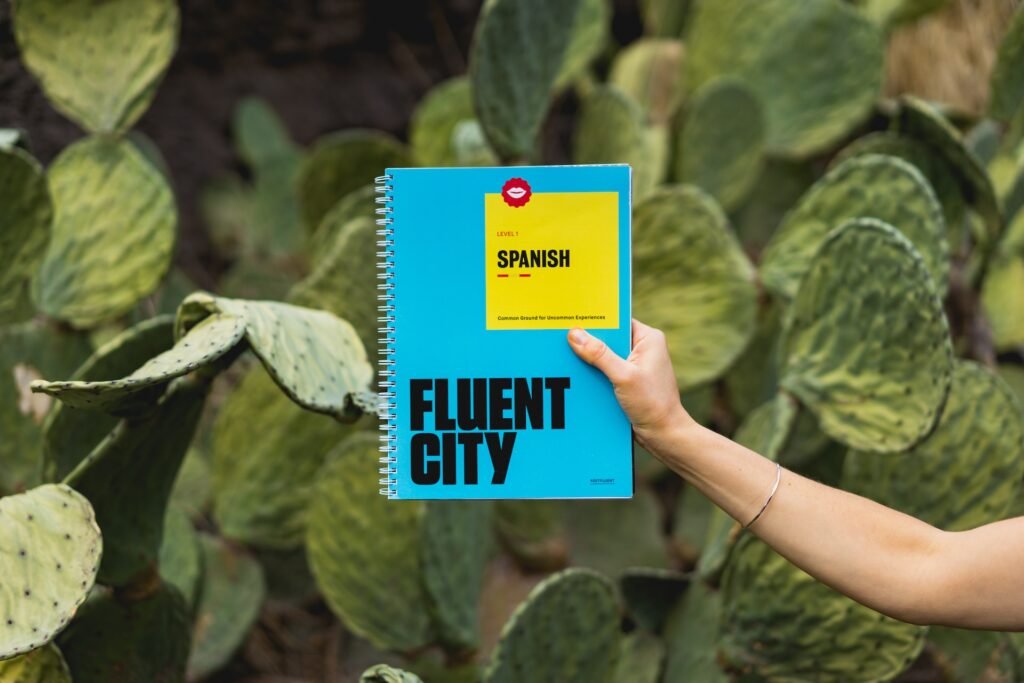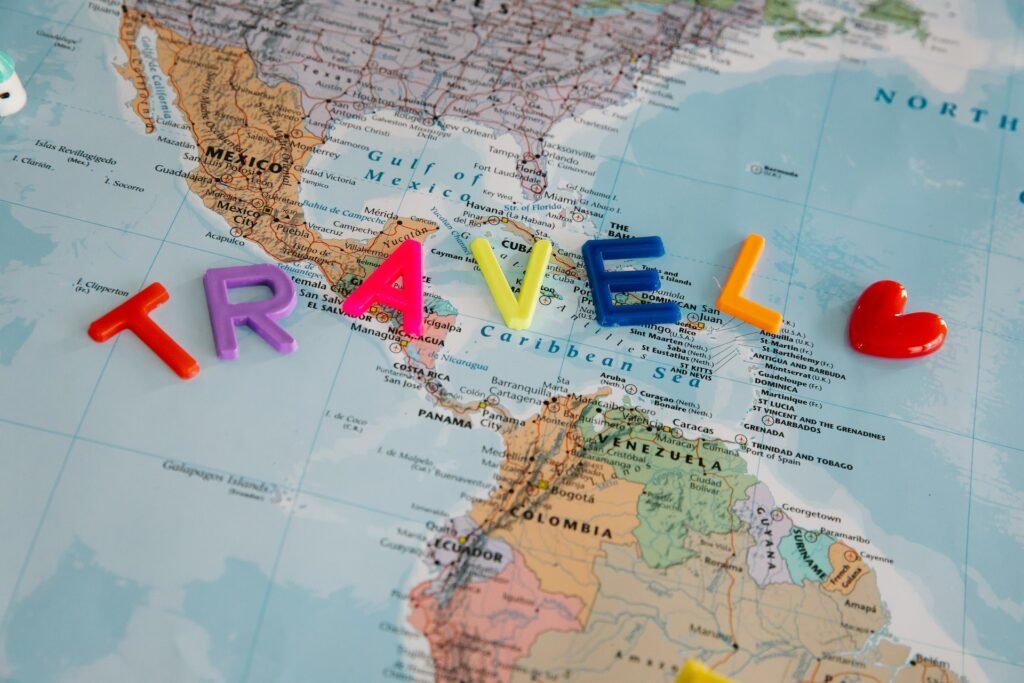Are you ready to step up your current level of Spanish education? Here is a must-have tool for any aspiring Spanish learner! This thorough guide dives deep into the foundation of mastering Spanish; from accessing the best resources available to applying cutting-edge learning strategies, this guide will provide everything you need for developing and maintaining Spanish fluency. We’ll also be discussing options for advancing your Spanish education from immersive experiences to travel and more—so get ready to embark on the exciting journey of Spanish education!

Dive in! This ultimate guide has got you covered – use the table of contents to navigate!
Table of content
- INTRODUCTION TO SPANISH EDUCATION: LANGUAGE BASICS AND GOALS
- BEST RESOURCES FOR SPANISH LANGUAGE LEARNING
- IMMERSION AND HOW IT ACCELERATES YOUR SPANISH LEARNING
- EFFECTIVE STRATEGIES FOR LEARNING SPANISH
- VAST OPPORTUNITIES TO EXPAND YOUR SPANISH EDUCATION
- INCREASING YOUR SPANISH EDUCATION: DEVELOPING AND MAINTAINING FLUENCY
- TAKING YOUR SPANISH EDUCATION TO A NEW LEVEL
- LEARNING SPANISH THROUGH MUSIC AND MEDIA
- VISUALIZING SPANISH: MEMORIZING THE LANGUAGE WITH IMAGES
- LEVERAGING TECHNOLOGY TO ADVANCE YOUR SPANISH EDUCATION
- HOMESTAYS: INTIMATE LANGUAGE LEARNING AND CULTURAL EXPLORATION
- RESOURCES FOR NATIVE SPEAKERS TO PERFECT THEIR SPANISH
- ONLINE COURSES FOR COMPLETING SPANISH EDUCATION AT A DISTANCE
- SPANISH EDUCATION THROUGH TRAVEL: TAKING A DEEP DIVE INTO THE CULTURE
- YOUR EXCITING JOURNEY THROUGH SPANISH EDUCATION
Introduction to Spanish Education: Language Basics and Goals
| Benefits of Learning Spanish | Steps to Achieve Goals |
| Open up new career and travel opportunities | Understand the basics of Spanish language |
| Form meaningful connections with others | Educate yourself efficiently |
| Gain a greater appreciation for language and culture | Recognize the variety of Spanish dialects, vocabularies, and grammar used across the globe |
Additionally, it’s important to set realistic objectives when learning Spanish, such as the desired level of fluency, length of study, and areas of focus (conversational, written, or academic Spanish). Setting such quantified objectives will help you to better understand your progress and track your language learning achievements. Finally, dedicate yourself to learning Spanish diligently with full immersive involvement, as it’s the best way to learn. Develop a timeline for yourself and get started today to achieve your education goals in Spanish!
Best Resources for Spanish Language Learning

Learning Spanish can be intimidating, so it is important to find the right resources for successful fluency. Online classes, tutors and Spanish language apps are great tools for a fun and interactive experience, while podcasts, news, and music can give an immersive feeling of the language. Traditional resources such as books and flashcards are excellent for mastering vocabulary and grammar. To discover the culture behind the language, join a conversational Spanish class or student exchange program – they are invaluable! With the right resources, learning Spanish will be enjoyable with rewarding results.
Immersion and How it Accelerates Your Spanish Learning
Immerse yourself in Spanish language and culture to rapidly acquire fluency. In an immersion program, you are in constant contact with language and culture, allowing you to develop cultural fluency and better understand the language. Immerse yourself in native conversation and cultural events, forcing you to learn quickly and intensively. Notate and practice pronunciation to in turn build confidence and conversation skills. Accelerate your Spanish education with a complete learning experience through immersion.

Effective Strategies for Learning Spanish
| Effective Strategies for Learning Spanish | Details |
| Set concrete, attainable goals | Determine specific language skills you want to develop and set goals accordingly, such as vocabulary, grammar, or conversational skills. |
| Break goals down into manageable chunks | Set smaller goals that can be achieved in a shorter time frame, such as learning a certain number of new words or mastering a grammar concept. |
| Practice immersion in the language | Immerse yourself in the language by speaking with native speakers, watching Spanish-language films or TV shows, and listening to Spanish music or podcasts. |
| Set aside ample study time | Dedicate a specific amount of time each day or week to studying Spanish and practicing your skills. |
| Practice conversations with native speakers | Seek out opportunities to converse with native Spanish speakers, either in person or through online language exchange programs. |
| Gain exposure to the language through media | Read Spanish-language books, newspapers, and websites, and watch Spanish-language films and TV shows to improve your comprehension and vocabulary. |
| Engage actively with the language | Practice writing, speaking, and even singing in Spanish to improve your retention and fluency. |
| Utilize online language learning resources | Use language learning apps, podcasts, and videos to supplement your traditional education and reinforce your skills. |
| Remain committed to your learning journey | Stay motivated and dedicated to your language learning journey by tracking your progress and celebrating your achievements along the way. |
Vast Opportunities to Expand Your Spanish Education
Expanding your Spanish education is easy with the range of options available. From interactive lessons to online tutors, or traveling to a Spanish-speaking country, there’s something for every level of proficiency. To optimize your learning, assess areas you could improve and draw on what you already know. Books, software, and audio programs are great for reinforcing facts, but for personalized instruction nothing beats hiring a tutor or attending a language school.

Immersing yourself in the language and culture through activities like a Spanish immersion camp or cooking class can also make a big difference. Many universities offer numerous programs in Spanish or Latin American studies. Whatever your current level of Spanish, take the initiative and explore the resources and activities out there to increase your knowledge and appreciation of the language.
Increasing Your Spanish Education: Developing and Maintaining Fluency
| Developing and Maintaining Fluency | Details |
| Key Elements | |
| Pronunciation | Mastering the sounds and stress patterns of Spanish, including recognizing the differences between letters that are pronounced differently than in English, like “ñ” and “ll.” Consistent practice with a native speaker or using pronunciation exercises can help improve this skill. |
| Grammar | Learning the rules and structures that govern the Spanish language, including verb conjugation, adjective agreement, and word order. Practice using grammar exercises and seeking feedback from a teacher or native speaker can help improve this skill. |
| Vocabulary | Building a strong foundation of words and phrases that are commonly used in Spanish, including cognates (words that are similar in both languages) and idiomatic expressions. Practice using flashcards or language apps to learn new words and incorporating them into daily conversation. |
| Consistent practice | Setting aside regular time to practice listening, speaking, reading, and writing in Spanish, even if it’s just a few minutes a day. Consistency is key in building and maintaining fluency. |
| Native speaker practice | Engaging in conversation with a native speaker of Spanish can help improve comprehension, intonation, and cultural understanding. Look for language exchange programs, conversation clubs, or language tutors to practice with. |
| Activities to Increase Fluency | |
| Practice with native speakers | Seeking out opportunities to practice speaking with native Spanish speakers, including online language exchanges, language schools, or travel to Spanish-speaking countries. |
| Social context practice | Practicing Spanish in real-life situations, such as ordering food at a restaurant, asking for directions, or making small talk with Spanish-speaking colleagues or friends. |
| Reading Spanish literature | Reading Spanish books, magazines, or news articles can help improve vocabulary, grammar, and cultural understanding. Start with simple children’s books or graded readers if you’re a beginner. |
| Keeping a Spanish journal | Writing in Spanish every day can help improve writing skills and build confidence. You can write about your day, practice using new vocabulary, or reflect on your progress learning the language. |
| Watching Spanish films and TV shows | Watching Spanish-language media can improve listening skills, pronunciation, and cultural understanding. Consider using Spanish subtitles to help with comprehension. |
| Keeping an eye out for Spanish phrases and vocabulary | Paying attention to the Spanish spoken around you, whether it’s on TV, in movies, or in conversation, can help you pick up new words and phrases. |
| Establishing a Spanish curriculum | Creating a structured plan for learning Spanish can help you track your progress and set goals. This can include taking classes, using language learning apps, or following a textbook. |
| Benefits of Fluency | |
| Smoother and more natural communication | Being able to speak Spanish fluently can help you communicate more effectively with Spanish-speaking friends, colleagues, or clients. |
| Improved reading, writing, speaking, and understanding abilities | Developing fluency in Spanish can improve all aspects of language learning, including listening comprehension, writing skills, and grammar knowledge. |
| Ability to interact with real-world Spanish | Being able to understand and interact with Spanish speakers can help you appreciate Spanish-speaking cultures and build connections with people from different backgrounds. |
| Exciting journey to fluency in Spanish | Learning a new language can be challenging but also rewarding and fun. Enjoy the journey, celebrate your progress along the way! |
Taking Your Spanish Education to a New Level
Taking your Spanish Education to a New Level can be exhilarating, yet calls for thoroughness and determination. Such could involve reading Spanish literature, magazines and newspapers, viewing Spanish films and television shows, attending Spanish classes, or enrolling in online language courses. Moreover, mingling with Spanish speakers, listening to Spanish music, and traveling to Spanish-speaking nations are all exceedingly valuable experiences for elevating your Spanish Education.

It is also essential to continually challenge yourself. Attempt to converse with native speakers, embrace new challenges in the language, and utilize various online resources to push your Spanish Education even further. In sum, learning Spanish is not only incredibly fulfilling, but it can also unlock many doors in both the professional and personal worlds. With the appropriate level of commitment, Spanish can become an intrinsic part of your life, transporting you to an entirely new educational level.
Additional online resources
| Online Spanish Learning Resource | Description |
| Duolingo | A popular language learning app that offers gamified lessons to help you learn Spanish vocabulary, grammar, and sentence structure. https://www.duolingo.com/ |
| Memrise | Another language learning app that uses memory techniques and interactive activities to teach Spanish. https://www.memrise.com/ |
| StudySpanish.com | A website that offers free online lessons covering grammar, vocabulary, verb conjugation, and more. https://www.studyspanish.com/ |
| SpanishDict | A website and app that provides free English-to-Spanish translations, conjugation tools, and vocabulary resources. https://www.spanishdict.com/ |
| Lingoda Language Marathon | A language learning program that offers a free 7-day trial and access to live online Spanish classes with qualified teachers. https://www.lingoda.com/ |
| Learn Spanish Online | A comprehensive website that offers free Spanish lessons, exercises, and audio recordings to help you improve your language skills. https://www.learn-spanish-online.de/ |
| Coffee Break Spanish | A podcast that provides free audio lessons on Spanish grammar and vocabulary. https://coffeebreaklanguages.com/category/spanish/ |
| OpenCulture | A website that curates a list of free online Spanish courses from top universities, including audio and video lectures, assignments, and quizzes. https://www.openculture.com/free_spanish_lessons |
Learning Spanish Through Music and Media
Learning Spanish through music and media can be an immensely enjoyable and effective method of picking up a new language. Absorption of words and a strong understanding of language structure can be supported through the utilization of music in Spanish. Music can serve as a powerful tool for memorization and with its use, new words and phrases can become rooted within the subconscious.

An expansive variety of Spanish language media, such as films and series, can be utilized to build vocabulary, refine comprehension and provide examples of how native Spanish speakers interact within different environments. Combining music, film and series with other educational methods is the optimal approach for achieving success and lastly, Spanish music and media can bring a lot of delight to the journey of language learning.
Visualizing Spanish: Memorizing the Language with Images
Memorizing a language is a tricky task, often made easier by visualizing it through images. Visualization has been used to aid language learning for centuries, and with Spanish it is particularly effective. Visualization can help you to memorize the language, recall it quicker in conversations, and comprehend new words with greater ease.
By combining Spanish words or phrases with meaningful images, it’s easier to remember the words and build upon your language knowledge. You can do this by creating flashcards or engaging visual mind maps. Flashcards can be used to quickly identify the words you’re learning and associated images, while mind maps are great for seeing a complex amount of information quickly.

Images can also help to master challenging grammar points or complicated verb conjugations. You can use pictures, diagrams, and models to help you conceptualize the underlying rules of Spanish. Additionally, you can create visual memory aids like mnemonic devices to remember more complex details like rules of spelling and conjugation.
By visualizing Spanish, you ensure that memorizing the language is a fun and engaging process. It’ll help you retain information more quickly and help you develop a stronger foundation. Keep visualizing and you’ll be able to remember Spanish better and increase your fluency.
Leveraging Technology to Advance Your Spanish Education

Leveraging technology to further one’s Spanish education is a wonderful way to make the learning process efficient and enjoyable. From virtual tutors, automatic speech recognition, to virtual immersion, a slew of technological tools exist to create personalized plans, track progress and acquire new words. What’s more, learners can access Spanish language and cultural studies in formats like videos, audio, written material, and interactive activities – all with great ease, thanks to tech. Overall, leveraging technology is an ideal way to expand one’s Spanish language and cultural knowledge quickly and effectively.
Homestays: Intimate Language Learning and Cultural Exploration
By living with a local host family, you get an intimate inside look into the culture and a unique opportunity to practice and improve your language skills. In a homestay, you’ll be exposed to true Spanish conversations and have access to endless resources for learning unique cultural insights. You’ll learn about the local customs and be able to share meals with a warm, welcoming family. You’ll be able to take part in daily conversations and truly experience what it’s like to live like a local.

From using the correct accents to becoming comfortable navigating daily tasks, homestays offer unparalleled opportunities for language and cultural immersion that you’ll never find in a classroom. If you’re looking to enhance your Spanish education, opting for a homestay is a great way to do it.
Resources for Native Speakers to Perfect their Spanish
With Spanish being natively spoken in most countries across the world, there’s a plethora of resources available for native Spanish speakers to perfect the language. From digital language learning platforms and online Spanish courses, to textbooks and language exchange networks, native Spanish speakers have more options than ever before to level up their language proficiency. Consider also attending live speaking events and cultural activities to build confidence in using the language. Immersing oneself in Spanish speaking environments allows native speakers to take their language learning to elevated heights.

In addition to digital resources, there’s a wealth of inspiring Spanish TED Talks and podcasts, which can help native Spanish speakers to gain a better understanding of the language to use in daily life. Spanish YouTubers and influencers can also provide helpful insights into the language and perfecting various complexly expressed sounds and pronunciations. Finally, native Spanish speakers can easily benefit from language refresher courses to ensure they’re not forgetting any of the basics and improve their Spanish literacy skills. By using a combination of the resources listed here, native Spanish speakers can perfect their language and take pride in their mastery of their native tongue.
Check out our blog on Education Books to learn 18 reasons how they can help you level up you learning.
Online Courses for Completing Spanish Education at a Distance
Distance learning for Spanish has become a great deal more popular among language learners. Through interactive videos, text materials, audio exercises and games, online courses give students an immersive learning experience that is otherwise unavailable in person. Personalized feedback, instructor support, and flexible schedules add additional benefits to the learning experience, further aiding the process. All in all, online courses make completing a Spanish education much more accessible, flexible and comprehensive.

Spanish Education Through Travel: Taking a Deep Dive into the Culture
Immersing yourself in the language and culture of Spanish-speaking countries through travel can offer an invaluable education.
| Experience | Description |
| Homestays with Native Speakers | Staying with a host family who speaks Spanish as their first language offers a unique opportunity to practice the language in a real-life setting and immerse oneself in the culture. |
| Guided Tours of Historical Sites | Visiting historical sites with a knowledgeable guide can provide insight into the country’s history, art, and architecture. |
| Conversations with Locals | Engaging in conversations with locals can help travelers practice their Spanish and gain a better understanding of the culture. |
| Traditional Spanish Cooking Classes | Learning to cook traditional Spanish dishes offers a hands-on experience that deepens understanding of the country’s culinary traditions. |
| Music and Folk Tales | Listening to Spanish music and learning about traditional folk tales can provide insight into the country’s culture and history. |
| Local Language Classes or Private Lessons | Taking formal language classes or private lessons with a tutor can improve understanding and fluency. |
| Cultural Events | Attending festivals or art shows in Spanish-speaking countries provides an opportunity to practice the language and engage with the culture in a stress-free environment. |
| Benefits | Immersing oneself in the language and culture of Spanish-speaking countries through travel can offer an invaluable education and increase confidence and knowledge of Spanish upon return home. |
Your Exciting Journey Through Spanish Education
Learning Spanish is both a fun and rewarding voyage, with numerous resources and strategies to enhance your exploration towards mastering the language. Whether you want to submerge yourself in the language, concoct tactics for maximum understanding, or dive deep into Spanish culture, there are many opportunities for comprehensive Spanish education.
For beginners, there are elementary pronunciation, grammar, and basic vocabulary. Along with that, there are multiple resources, such as online courses and instructional books, to accelerate your comprehension. Looking for immersive experiences, homestays and travel are available.
When it comes to mastery, visualizing the words, phrases, and grammar structures through images and media is effective. Moreover, incorporating the language into music and using technology can further enhance the learning process. For those already advanced, native-speaking options, like conversational practice and grammar classes, are available to perfect fluency.
Altogether, your journey through Spanish education is exciting and gratifying. With suitable resources and strategies, you can investigate the fascinating world of Spanish and become a master of this exquisite language.
Checkout our blog on: Education Book: 18 Reasons to Own an Education Book

